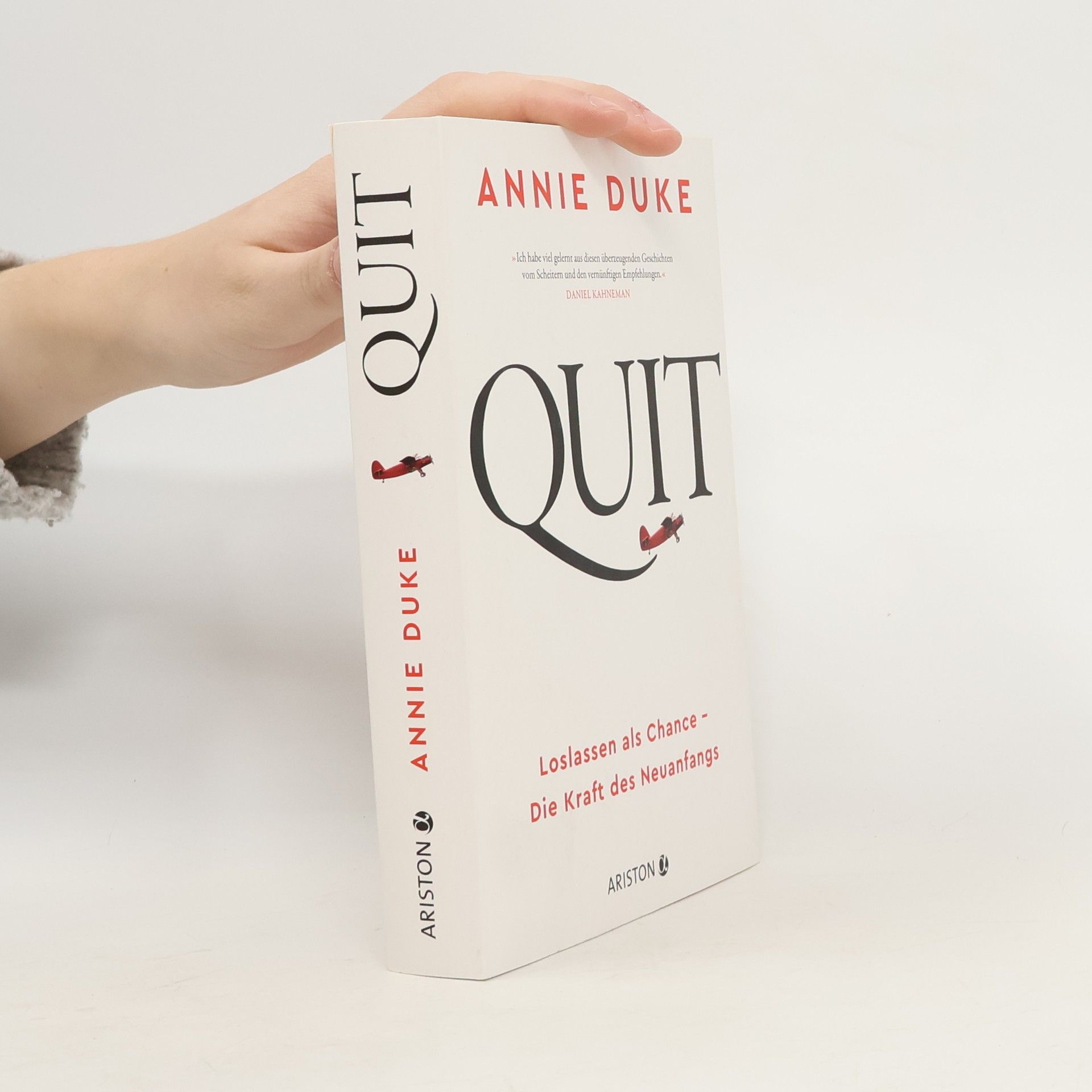'Brilliant and entertaining' Daniel Kahneman | 'Quit what you are doing right now and read this' Richard Thaler | 'Engrossing, important, and grounded in science' Katy Milkman What if the secret to success is not just hard work, but knowing when to change track? In this game-changing guide, decision-making expert Annie Duke shows why quitting what holds you back is essential for success. Drawing on new research and fascinating examples, this book offers practical strategies and explains- Why it's so hard to walk away How to identify when it's best to persevere or pivot How quitting on time often feels like quitting too early Packed with insights from athletes, start-up founders and entertainers, Quit breaks down the mental model that keeps us from walking away and provides a toolkit for quitting anything - a career, a marriage, an investment - at the perfect time.
Annie Duke Livres
Annie est cofondatrice de The Alliance for Decision Education, une organisation à but non lucratif dont la mission est d'améliorer des vies en donnant aux élèves les moyens d'acquérir des compétences décisionnelles. Elle est également membre du conseil national d'After-School All-Stars et du conseil d'administration du Franklin Institute. En 2020, elle a rejoint le conseil de la Renew Democracy Initiative.
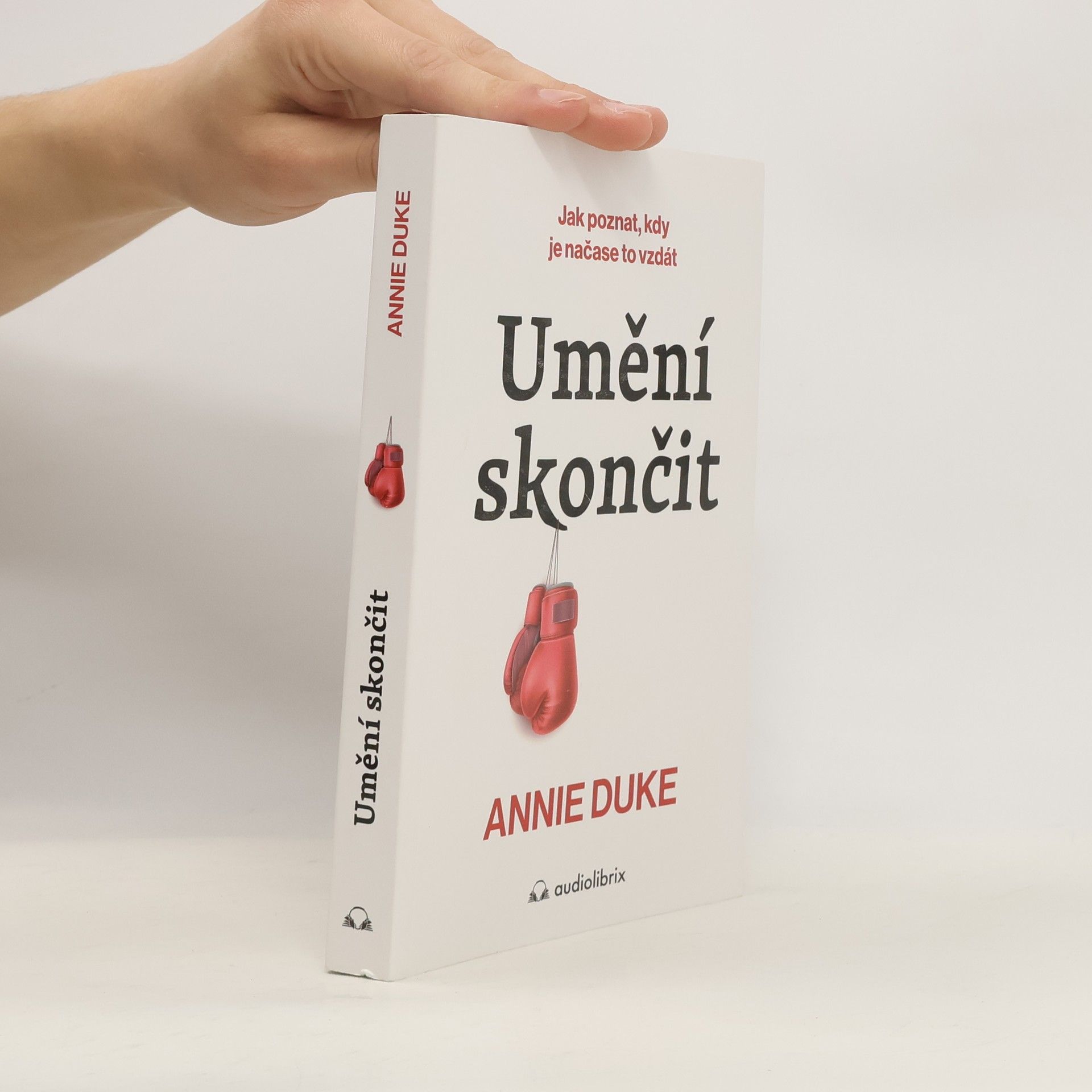
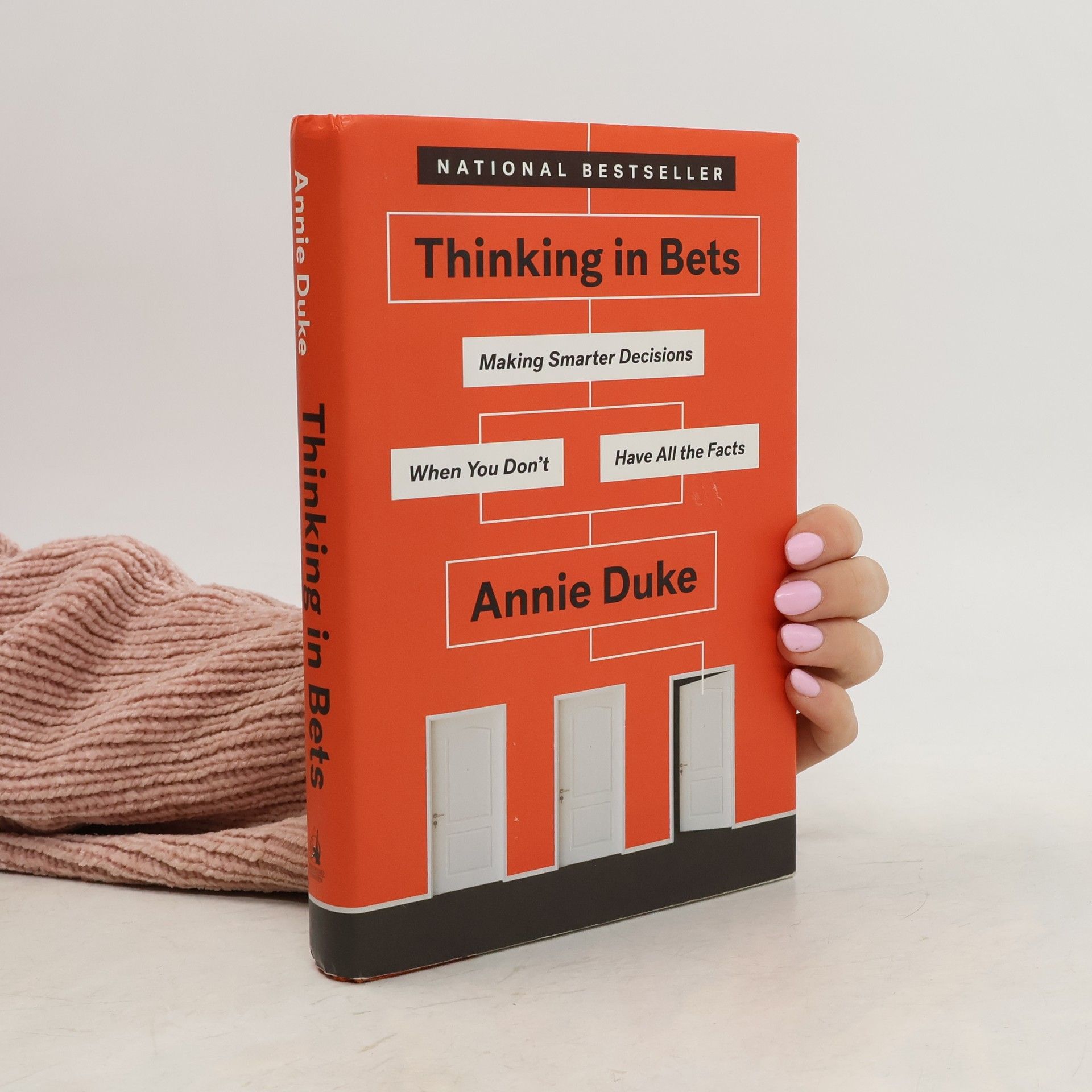
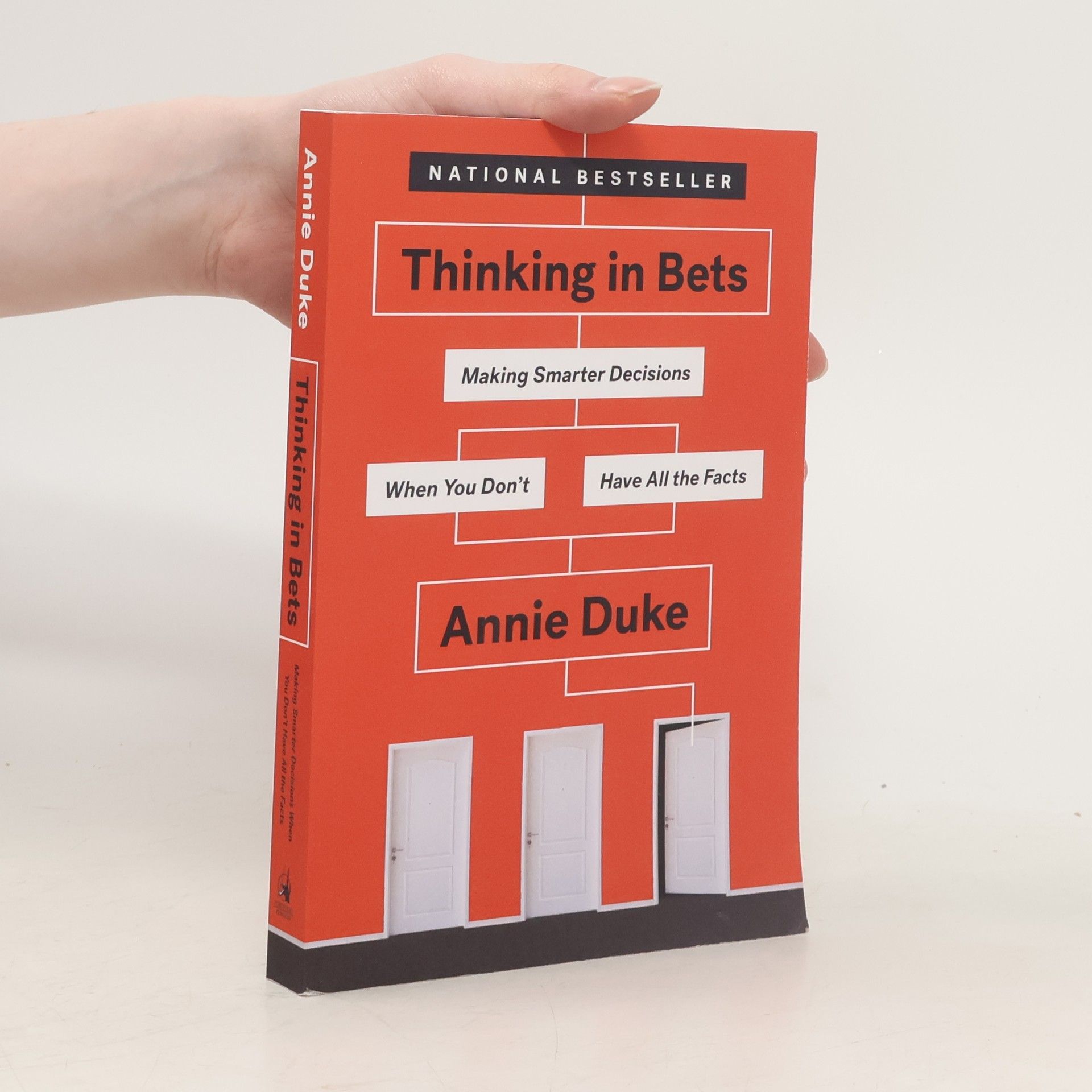

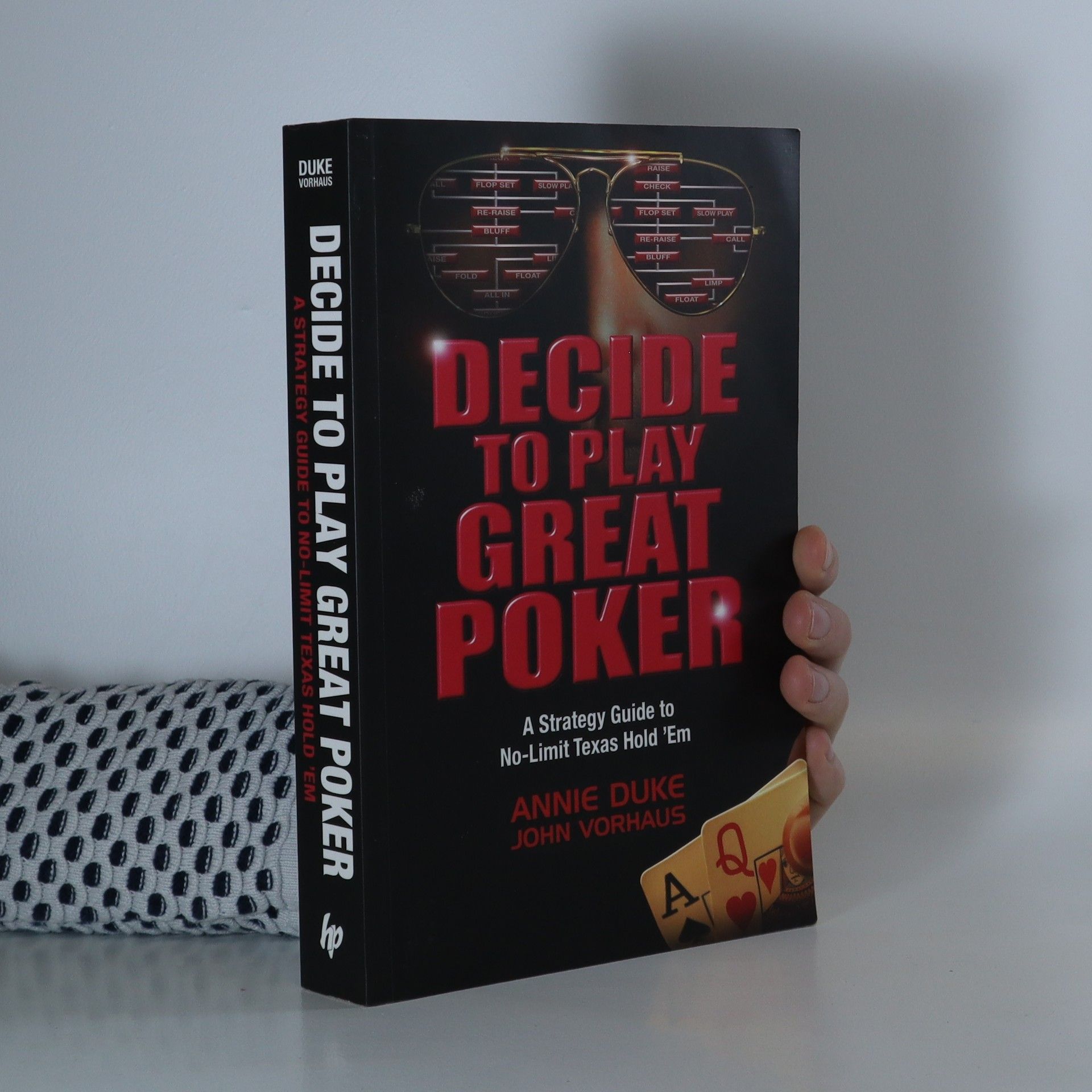
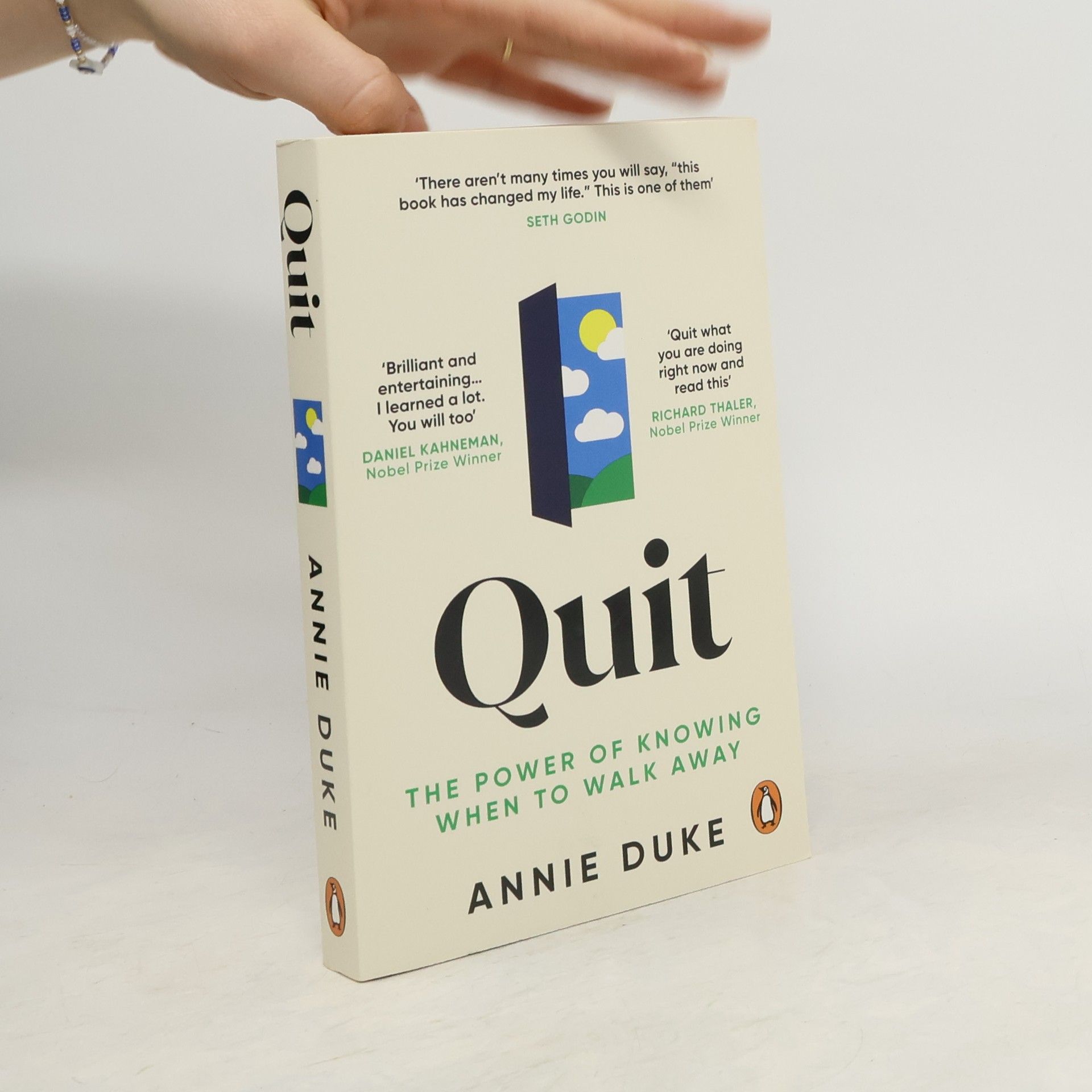
Decide to Play Great Poker
- 464pages
- 17 heures de lecture
Ask the great poker players how they'd play a hand and the answer is always, "It depends." That answer can be infuriating. But guess what? It really does depend. The key to becoming a great poker player is in knowing exactly what it depends on. At last there's a book that gives you that answer.Poker is a game of so many table position, flop texture, the number of players in a hand, the personalities of your opponents, and so much more. Decide to Play Great Poker teaches you how to identify and analyze those variables, interchange them within basic game-situation templates, and become knowledgeable, comfortable, and confident in any poker situation. Instead of just dictating a bunch of rules that work only some of the time, this book teaches you to become a great poker thinker and strategist, so that you can expertly navigate any poker challenge that you encounter.Most players think that the goal of poker is to make money. They're wrong! The goal of poker is to make good decisions. Money is simply the way you measure how well you're meeting that objective. So if you're ready to start making world-class decisions at the poker table--and to reap the substantial rewards that those decisions will yield--all you have to do is Decide to Play Great Poker now.You'll never be vexed by "it depends" again.
How To Decide
- 288pages
- 11 heures de lecture
Thinking in Bets
- 288pages
- 11 heures de lecture
Poker champion and business consultant Annie Duke teaches how to embrace uncertainty and improve decision-making. A pivotal example is Seahawks coach Pete Carroll's controversial call during Super Bowl XLIX, where a pass led to an interception and a loss. Critics labeled it a poor decision, but Duke prompts us to consider whether it was a bad call or simply a case of bad luck. She emphasizes that even the best decisions don't guarantee favorable outcomes due to uncontrollable luck and hidden information. The key to long-term success lies in thinking in bets: assessing confidence levels, potential outcomes, and the odds of success. Duke encourages readers to reflect on whether they fell into the unlucky 10% of a strategy that usually works or if their success was mere luck. Drawing from diverse fields like business, sports, and poker, she provides tools to navigate uncertainty and enhance decision-making. In a world that prizes certainty, many struggle to admit uncertainty. However, professional poker players accept that great decisions can lead to unexpected results. By shifting focus from seeking certainty to accurately evaluating knowledge, individuals can reduce emotional reactivity and biases, ultimately becoming more confident, calm, and successful over time.
Thinking in Bets: Making Smarter Decisions When You Don't Have All the Facts
- 276pages
- 10 heures de lecture
Poker champion and business consultant Annie Duke teaches how to embrace uncertainty and enhance decision-making. A pivotal moment in this exploration is Seahawks coach Pete Carroll's controversial call during Super Bowl XLIX, where a pass led to an interception and loss. Critics labeled it a poor decision, but Duke prompts us to reconsider: was it truly a bad call, or just an unfortunate outcome? Even sound decisions can yield unexpected results due to luck and hidden information. To achieve long-term success, one must think in bets—assessing certainty, potential outcomes, and the odds of success. This approach helps differentiate between luck and skill in decision-making. Drawing from experiences in business, sports, and poker, Duke provides practical tools for navigating uncertainty. Many struggle to admit uncertainty in a world that prizes confidence, yet professional poker players recognize that good decisions don't always guarantee favorable outcomes. By shifting focus from the need for certainty to evaluating what you know and what you don't, you can mitigate emotional reactions, biases, and detrimental habits. This mindset fosters greater confidence, calmness, compassion, and ultimately, success.
Umění skončit - Jak poznat, kdy je čas to vzdát
- 328pages
- 12 heures de lecture
Od autorky bestselleru Thinking in Bets – soubor nástrojů, jak si osvojit dovednost odejít a dosáhnout většího úspěchu. Firemní lídři, ztrácející miliony dolarů na neúspěšných aplikacích či produktech, často váhají s jejich opuštěním. Vlády uvízlé v konfliktech doufají, že nová strategie přinese vítězství. A my sami se často držíme vztahů či kariér, které nám již neprospívají. Důvod? Podle Annie Dukeové máme problém s rozhodnutím ukončit něco neúspěšného, což nás výrazně brzdí. V knize Umění skončit Dukeová ukazuje, jak se naučit správně ukončovat. Používá příklady elitních sportovců, jako jsou horolezci na Everestu, zakladatelů úspěšných firem jako Stewart Butterfield ze Slacku, nebo umělců typu Davea Chappella. Vysvětluje, že odchod je klíčový pro úspěch, a nabízí metody, jak rozhodnout, kdy vytrvat, a kdy se vzdát, čímž ušetříte čas, energii a peníze. Naučíte se rozumět paradoxu odchodu, identifikovat síly bránící správnému rozhodnutí o odchodu, a jak lépe rozhodovat na základě očekávané hodnoty a dalších postupů. Tato kniha je vhodná pro ty, kdo čelí důležitému rozhodnutí nebo životní změně, a pomůže jim udělat ten nejlepší další krok.
Błyskotliwy i wnikliwy przewodnik po umiejętności wycofania się we właściwym czasie, która jest często niedoceniana. Wiele osób przyjmuje, że zwycięzcy nigdy nie rezygnują, co prowadzi do trzymania się złych decyzji – takich jak nieodpowiednia praca, kiepskie inwestycje czy toksyczne relacje. Psychologicznie jesteśmy skłonni trwać w zaangażowaniach, mimo że mogą być one niekorzystne. Umiejętność podejmowania mądrych decyzji o rezygnacji odróżnia ludzi odnoszących sukcesy od tych, którym się nie udaje. Bestsellerowa autorka i ekspertka w dziedzinie podejmowania decyzji, Annie Duke, wykorzystuje przemyślane przykłady oraz naukowe podstawy behawiorystyki, aby pokazać, dlaczego umiejętność rezygnacji jest kluczowa w życiu. Wyjaśnia, dlaczego rezygnacja często wydaje się przedwczesna, jak ocenić, czy warto wytrwać, oraz jak korzystać z pomocy innych w procesie rezygnacji. Książka pełna jest przykładów z życia założycieli start-upów, sportowców i artystów, którzy skutecznie mówią „Dość!” w odpowiednich momentach. Oferuje również praktyczne strategie zakończenia przedsięwzięć w różnych dziedzinach, takich jak kariera, małżeństwo czy inwestycje.
Quit
Loslassen als Chance – Die Kraft des Neuanfangs
Wer nicht aufgibt, verliert! »Die Stärke zu wissen, wann es Zeit ist aufzuhören«. In der heutigen leistungsorientierten Gesellschaft ist das Aufgeben ein Schandfleck im Lebenslauf. Wie oft haben wir schon etwas abgeschlossen, was uns weder glücklich gemacht hat, noch einen Vorteil gebracht hat, einfach nur, weil wir es nicht abbrechen konnten, oder wollten? Annie Duke beschreibt in »Quit«, wann der Mut, der eine Tugend ist und uns voran treibt, sich in einen Laster verwandeln kann. Über Jahrzehnte hinweg gibt es die Mentalität: »Quitters never win, and winners never quit.« Aber stimmt das? Die Autorin gibt uns auf faszinierende und erfrischende Art und Weise Einsichten in eine neue und mögliche gesellschaftliche Mentalität, in der das Aufgeben auch eine Chance sein kann.
Die Weltklasse-Pokerspielerin Annie Duke zeigt, wie Sie sich mit Unsicherheiten anfreunden und dadurch bessere Entscheidungen treffen können. Manchmal entscheidet der Zufall, manchmal Geschicklichkeit – das gilt nicht nur für den Erfolg beim Pokern, sondern auch im Leben: Die besten Entscheidungen führen nicht immer zum besten Ergebnis, denn es gibt immer ein Element des Glücks, das man nicht kontrollieren, und Informationen, die man nicht wissen kann. Möchte man also langfristig erfolgreich sein, so muss man auf Wahrscheinlichkeiten wetten, um so die Lage besser einordnen zu können und voreilige Schlüsse zu vermeiden – sprich: in Wetten denken. Annie Duke, die ehemalige Gewinnerin der World Series of Poker zeigt anhand von Beispielen aus Politik, Wirtschaft, Poker und Sport, wie man mit jeder Unsicherheit umgehen lernt und in der Folge selbstbewusster und gelassener bessere Entscheidungen treffen kann, um dann seine Karten optimal auszuspielen.

